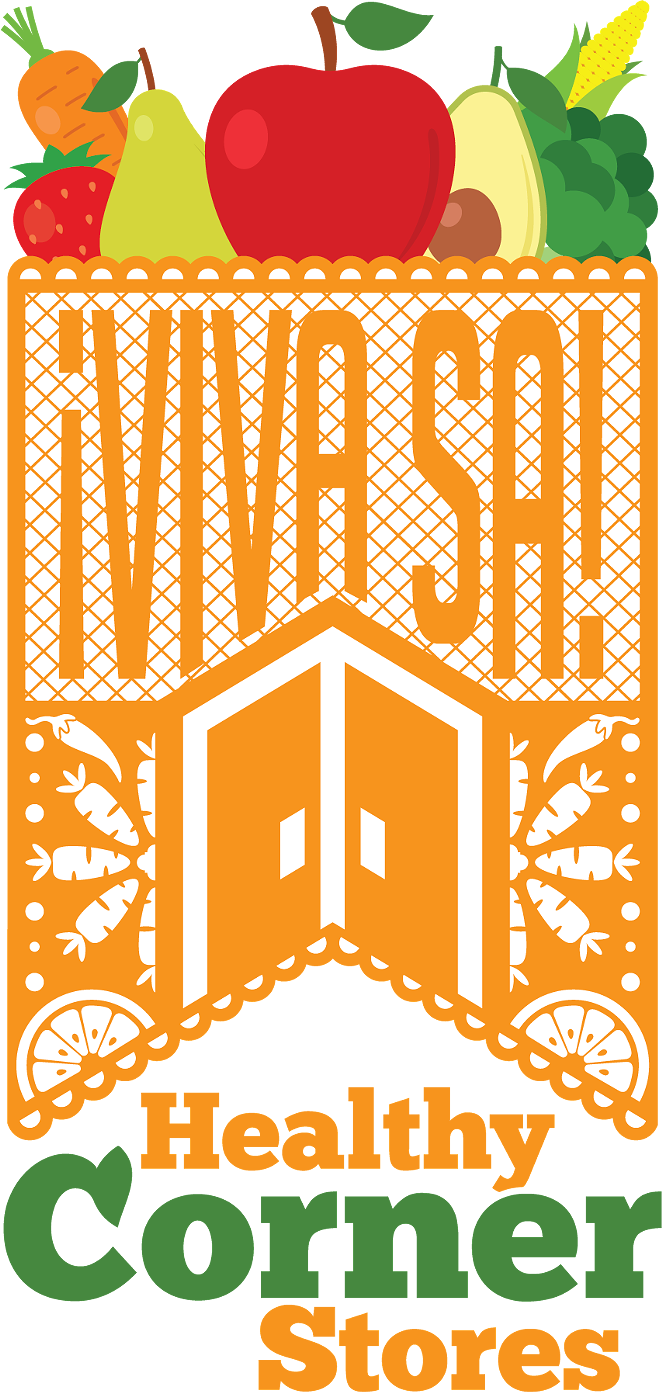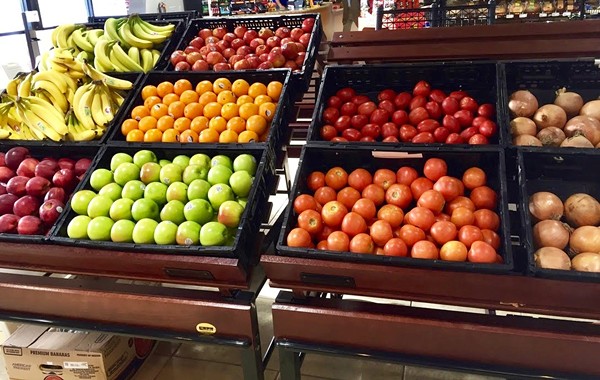Fast food restaurants and corner stores define much of the South Side’s landscape — and its food desert.
This lack of healthy eating options is especially tough on vulnerable residents in District 3. For many elderly people and families living in poverty, it’s not easy to make a trip to the nearest grocery store for fresh and nutritious foods.
The Healthy Corner Store Initiative — developed by the Food Policy Council of San Antonio, District 3 Councilwoman Rebecca Viagran, University of the Incarnate Word’s School of Osteopathic Medicine, Metro Health San Antonio, healthy frozen food company Happi Foodi and distributors such as River City Produce — aims to fix that by offering easier access to quality food, including fresh fruits and vegetables, at an affordable price.
“If you look at District 3, the rate of diabetes is almost three times that of the rest of San Antonio,” said Dr. Anil T. Mangla, associate professor at UIW’s School of Osteopathic Medicine. “We wanted our school to help the community and make a difference. We knew we had to start somewhere.”
The HCSI pilot will assist an estimated 400 to 800 area families by bringing healthier food choices to the corner stores where they’re likely to shop, Mangla said. If successful in District 3, it will be expanded to address food deserts in other parts of the city.
By the end of February, stakeholders will identify the five to 10 corner stores that will participate in the pilot. The shops will stock their shelves and coolers with healthier options — initially, fresh fruit and vegetables — over the following weeks.
HCSI will then distribute $5 to $20 food vouchers, which are redeemable for healthy food at those stores. The vouchers will be available to District 3 families at events and site visits to Southside ISD campuses, the Opportunity Home San Antonio, the District 3 council office and Metro Health facilities.
UIW students will visit participating convenience stores weekly to collect vouchers and reimburse the businesses in cash. The students will also set the metrics used to measure the neighborhood’s health improvements and measure program-related food waste and identify which areas use the vouchers the most.
Selling Smaller
The pilot will be funded by $50,000 from the City’s fiscal 2019 budget, as well as a $25,000 grant from Happi Foodi to buy the fridges corner stores need to stock perishable items.
“The money will eventually run out, but we want there to be a sustainable business model behind this when it does,” said Mitch Hagney, president of the Food Policy Council of San Antonio.

- Courtesy
For many South Side residents, corner stores are the most accessible way to make food purchases, but those mom-and-pop shops are less likely to carry healthy products with a limited shelf life. What’s more, most wholesale produce distributors require minimum volume purchases to justify delivery costs — large orders that aren’t guaranteed to sell at convenience stores.
“[Program stakeholders] asked if we could cut back on our minimum delivery standards and break cases apart, which most companies will not do — and we totally agreed to that,” said Chris Uribe, business development and marketing officer for River City Produce, itself headquartered on the South Side. “We had noticed there was a big discrepancy in [healthy foods available] on the South Side. There’s really no grocery store or anything in that area, just a Dollar General.”
River City has also offered to work with store vendors who order more produce than they can sell.
“If they end up only needing two pounds of tomatoes, we’re more than happy to come back and pick it up,” Uribe said. “We already deliver in the area, so it’s not costing us any more to stop by. We’re already down the street from you.”
Waiting for Years
Residents within the Southside ISD have been waiting for years for a neighborhood grocery store. The district’s administration building is a 15-minute car trip away from the nearest supermarket. In 2017, H-E-B Grocery Co. purchased 24 acres for a future mixed-use development at the northwest intersection of Loop 410 and Roosevelt Avenue. However, the company has no immediate plans to build a store.
“We can’t wait, we still have to have healthy food for our community,” Councilwoman Viagran said. “We want to fill a gap that we see, and we want to fill it with access to healthy food, now.”
Viagran, a longtime advocate for healthier food in her district, helped secure the money from the city budget. After the Food Policy Council received its grant from Happi Foodi, it teamed up with the District 3 office to bring more community organizations and companies into the mix.
“I don’t think many people understand or realize how hard it is for so many [families] to get real food or understand the health concerns that are followed by unhealthy eating,” said Deb Corley, Happi Foodi’s chief marketing officer. “In my world, that might mean I can change my diet using paleo or keto or organic [foods], but in [a food insecure] world, where the only accessible foods are high-fat and high-sugar, these are things that will literally kill you if you eat [them] every day.”
Similar programs in cities such as Philadelphia, Chicago and Houston have experienced growth in participating stores and improvements in residents’ health. UIW’s Mangla hopes to see the same positive results as HCSI grows in San Antonio.
“What we’re trying to do through the Healthy Corner Store Initiative right now — changing health, diet and food access — is almost daunting,” Mangla said. “We’re hoping that we can help bring changes to these neighborhoods through this program, but we hope it will make a big difference.”
